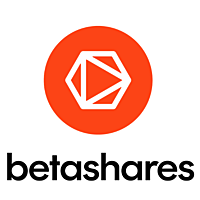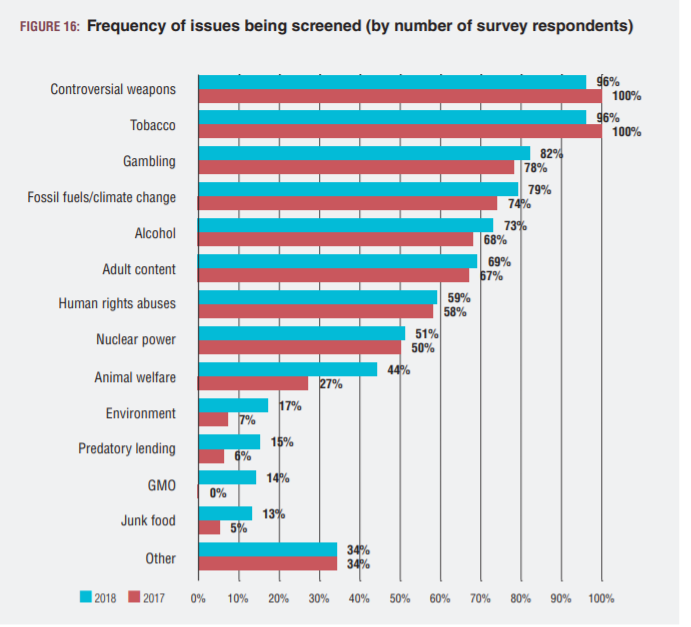What we learned from Wirecard – does your ethical ETF pass the pub test?

Betashares
Late last week, German payments giant Wirecard filed for insolvency, owing creditors almost $5.8 billion. The company’s collapse came a week after its auditor, Ernst and Young (EY), found a massive $3.1 billion hole in its books. EY refused to sign off on the company’s 2019 accounts, saying there were indications of an “elaborate and sophisticated fraud involving multiple parties around the world”.
Markus Braun, the firm’s CEO, resigned, and was subsequently arrested on suspicion of misrepresenting the firm’s finances.
Wirecard’s implosion is a stunning fall from grace for a company that was once seen as a champion of the European technology industry.
So how is the demise of a German fintech company relevant to Australian investors?
While it’s likely that relatively few Australian investors will have had direct exposure to Wirecard, it’s possible that significantly more had exposure via a managed fund or ETF.
The holders of broad sharemarket funds may be relatively sanguine about an event such as this, accepting that broad sharemarket exposure inevitably involves ‘taking the bad with the good’.
However, for one rapidly-growing class of investors, investing their money in businesses whose environmental, social and governance (ESG) standards are beyond reproach is non-negotiable. For these investors, a true-to-label ethical exposure is one of the most important factors to be considered in their investment choices.
What do we know about Wirecard?
Wirecard offers products and services in the areas of mobile payments, e-commerce, digitisation and finance technology. It is also one of the popular options consumers can use to gamble online. Once an account is set up with Wirecard, it can be loaded with funds from a credit or debit card, or from a bank account. Account holders can use Wirecard to move money to and from online casinos, without having to disclose their banking information.
In a report by the Financial Times1, Wirecard acknowledged that up to 10% of its payment volumes “relate to lottery, gambling, dating, adult entertainment and associated business models”.
In its Responsible Investment Benchmark Report 2019, the Responsible Investment Association Australasia (RIAA) found that 82% of the responsible investment managers surveyed said they screened investments for gambling (see figure below).

Source: Responsible Investment Benchmark Report 2019, RIAA.
True-to-label ethical exposure?
BetaShares’ market-leading global equities-focused ethical ETF, the Global Sustainability Leaders ETF (ASX: ETHI), aims to track an index that applies limits to the percentage of a company’s revenue that can be derived from activities deemed inconsistent with responsible investment considerations. These exposure limit guidelines include a limit of 0% for casinos and manufacture of gaming products, and 5% for distribution of gambling products.
Due to its involvement in gambling, Wirecard did not pass ETHI’s index screening process and was not included in its portfolio. It was estimated that well over 5% of Wirecard’s revenue was derived from providing payment services to online gambling, poker tournaments, and sports betting platforms.
Wirecard was also excluded from a number of other ASX-traded ethical ETFs – but not all.
Not all ethical exposures are created equal
For investors who are concerned about the true-to-label exposure of their ethical investments, it’s essential to have confidence that an ethical fund is screening out investments that do not align with their values.
As of 31 May 2020, the ~$1.24 billion in funds under management (FuM) in BetaShares’ three ethical ETFs accounted for more than 70% of total FuM in ethical ETFs traded on the ASX. BetaShares ethical ETFs have also accounted for 70% of the ~$1.53 billion in net inflows into ethical ETFs since 1 January 2017.
The performance of BetaShares’ equity-focused ETFs has been strong. For example, from its inception in January 2017 to 31 May 2020, ETHI returned 21.2% p.a.2
However, we believe that one of the primary reasons that investors (both institutional and individual) have favoured our ethical funds is the integrity and quality of the investment methodology our funds employ. You can read about our stringent screening processes here.
In addition, the Betashares Responsible Investment Committee may, applying the ESG-related screening criteria, exclude a company exposed to significant ESG-related reputational risk or controversy, if it considers that its inclusion would be inconsistent with the values of the underlying index.
Not all ethical funds apply such rigorous standards. The strictness of screening processes can vary between ethical ETFs, and many ethical ETFs rely on off-the-shelf indices without the kind of additional oversight that our Responsible Investment Committee provides.
This can result in stock inclusions that may not pass the ethical ‘pub test’ and would be out of place for many investors seeking an ethical exposure.
For example, the French beauty giant L’Oréal is currently a constituent in some ethical ETFs trading on the ASX. This company conducts animal testing for cosmetic purposes and has received a “Fail” grade from the influential Ethical Consumer Guide. L’Oréal was screened out of ETHI’s portfolio based upon its record on animal welfare.
In the last two years, other stocks screened out of ETHI but included in the portfolios of other ethical ETFs traded on the ASX have included Halliburton, Schlumberger, Barrick Gold, Valero, Kering and others that ethical investors may not be comfortable with, for reasons such as environmental degradation, fossil fuel exposure, animal cruelty, junk food, bribery, fraud, tax evasion and breaking trade sanctions.
Summary
The Wirecard episode demonstrates the importance of understanding what lies ‘under the hood’ of an ethical ETF. There can be significant differences between fund methodologies, and as a consequence, in the ability of different funds to deliver on their promise of offering ethically-screened portfolios that align with the values of ethical investors.
1. (VIEW LINK)
2. Past performance is not indicative of future performance. Investment value can go down as well as up.
Learn more
ETFs are one of the fastest growing investment vehicles in the Australian market. For a full range of products available to investors, please visit BetaShares website.
2 topics
2 stocks mentioned

BetaShares is a leading manager of ETFs and other Funds available on the ASX. With over 60 Funds covering all asset classes BetaShares aims to provide intelligent investment solutions, which help Australian investors meet their financial objectives.

BetaShares is a leading manager of ETFs and other Funds available on the ASX. With over 60 Funds covering all asset classes BetaShares aims to provide intelligent investment solutions, which help Australian investors meet their financial objectives.
